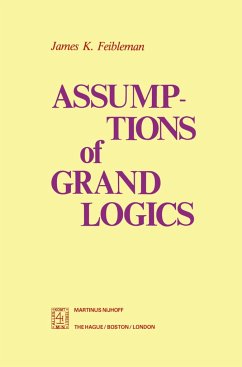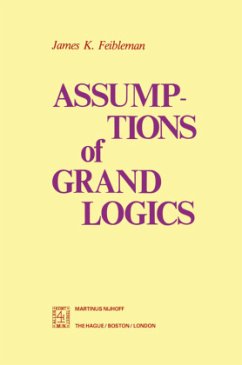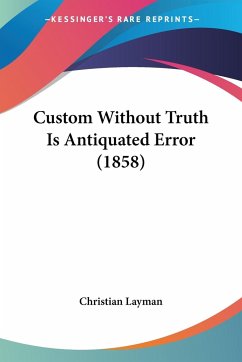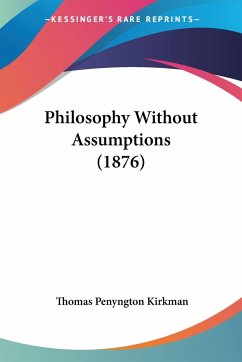
Philosophy Without Assumptions (1876)
Versandkostenfrei!
Versandfertig in 1-2 Wochen
31,99 €
inkl. MwSt.

PAYBACK Punkte
16 °P sammeln!
Philosophy Without Assumptions is a book written by Thomas Penyngton Kirkman and first published in 1876. In this work, Kirkman argues that philosophy should be based on empirical evidence rather than assumptions or preconceptions. He believes that many philosophical problems arise from the tendency to make assumptions about the nature of reality, without first examining the evidence.Kirkman begins by discussing the limitations of human knowledge and the importance of skepticism in philosophy. He then explores a range of philosophical topics, including the nature of causality, the existence of...
Philosophy Without Assumptions is a book written by Thomas Penyngton Kirkman and first published in 1876. In this work, Kirkman argues that philosophy should be based on empirical evidence rather than assumptions or preconceptions. He believes that many philosophical problems arise from the tendency to make assumptions about the nature of reality, without first examining the evidence.Kirkman begins by discussing the limitations of human knowledge and the importance of skepticism in philosophy. He then explores a range of philosophical topics, including the nature of causality, the existence of God, and the problem of free will. Throughout the book, Kirkman emphasizes the need for careful observation and analysis in order to arrive at sound philosophical conclusions.One of the key themes of Philosophy Without Assumptions is the idea that philosophy should be grounded in empirical evidence. Kirkman argues that many philosophical problems can be resolved by looking at the facts of the world around us, rather than relying on abstract reasoning or metaphysical speculation. He also emphasizes the importance of critical thinking and the need to question established beliefs and assumptions.Overall, Philosophy Without Assumptions is a thought-provoking work that challenges readers to think critically about the nature of reality and the role of philosophy in understanding it. Kirkman's emphasis on empirical evidence and skepticism continues to be relevant in contemporary philosophical debates.This scarce antiquarian book is a facsimile reprint of the old original and may contain some imperfections such as library marks and notations. Because we believe this work is culturally important, we have made it available as part of our commitment for protecting, preserving, and promoting the world's literature in affordable, high quality, modern editions, that are true to their original work.



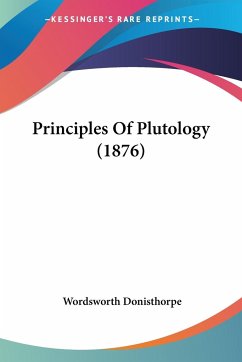
![The Realistic Assumptions of Modern Science Examined [Ed. by J.M. Hodgson] Cover The Realistic Assumptions of Modern Science Examined [Ed. by J.M. Hodgson]](https://bilder.buecher.de/produkte/64/64912/64912956n.jpg)


